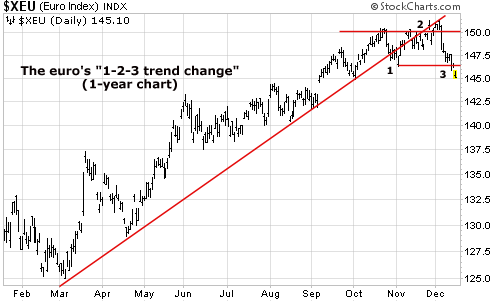| Home | About Us | Resources | Archive | Free Reports | Market Window |
Moving to Haiti... Because It's Better Than the StatesBy
Wednesday, December 16, 2009
"The U.S. is terrible now... I have more opportunity in Haiti."
Now that's a sentence I never thought I'd hear. But the guy who said it backed it up. He was my cabdriver in Miami over the weekend. "I started a grocery store back home in Haiti a couple years ago. My wife already moved back to Haiti to run it." "But what about the crime and the government there?" I asked. "Aren't you worried?" "Where I grew up... it's quiet," he told me. "It is NOT safe in the capital city. But I live a long way from there. I have to take a flight from the capital to get to my hometown. To answer your question... Put it this way, Haiti can only get better from where it is now. But the U.S. seems to get worse every day." Then he went on a Rush Limbaugh-style tirade about undeliverable government promises on health care and the environment and out-of-control government spending. He finished with: "At least the Haitian government knows it is out of money." Ouch. He's right... Technically, a U.S. government default on its obligations is way closer than you think. Check out this Reuters news headline and story from yesterday (emphasis mine): US House to vote on short-term debt limit hikeYes, the Haitian cabdriver was right... At least the Haitian people know their government is broke. Americans have no idea. It's not a crisis until... well... it is one. "So where do you get merchandise for your store?" I wanted to change the subject a bit. This guy was getting a little too intense for comfort. "From here in the States," he said. "Say a 50-pound bag of rice costs $30 here. By the time it gets to the grocery store in Haiti, I've spent a total of $60. But I still make a little money on it. And it's a better living than here in the States." "You mean you can make more money with a grocery store in Haiti," I asked him, "than you can by driving a taxi in Miami?" "Not really. What I mean is, my money goes much farther in Haiti, so my quality of life is much higher there." Gee. The guy made sense. All around. What has America come to when a cabdriver wants to leave "America, the land of opportunity" to become an entrepreneur in Haiti? Guys like this cabdriver – young entrepreneurs starting with nothing – are what has made America great for generations. But now, instead of staying here, they are going back to their home countries to get rich. America was made great because you've had the freedom to become whatever it is you could become... not because the government spends trillions more in taxpayer dollars than it takes in through taxes. So if you don't want to move to Haiti, what can you do? Right now, you can let your politicians know that if they're voting in favor of expanded government programs, then come reelection time, they will not have your vote. When there's more opportunity in Haiti than at home for a young entrepreneur, then America has seriously made a wrong turn. Good investing, Steve
Further Reading:
What the Government Should Do to Save America Market NotesHERE'S A CURRENCY TRADE YOU CAN MAKE IMMEDIATELY
For all the currency traders out there: The euro just fell victim to a textbook "1-2-3 trend change."
In his classic trading book, Trader Vic, the great trader Vic Sperandeo laid down the best way to spot a major trend change. Vic's system is as simple as 1-2-3, and it can make you a fortune if you use it properly. Here it is... First, a trending asset has to break its old trend line. The euro did this at point (1). Then, after declining a bit, the asset tries to match or exceed its old high, but fails. The euro did this at point (2). Finally, the asset breaks below its previous low point. The euro just did this at point (3). When this 1-2-3 process takes place, a trend reversal has occurred. The euro soared in 2009 in kind of a mirror image to the falling dollar. Most currency advisors now consider the euro overvalued. So... you have a currency union suffering big debt problems from Greece and Ireland, you have overvaluation, and you have a textbook trend change. The path of least resistance is now DOWN. 
|
In The Daily Crux
Recent Articles
|

